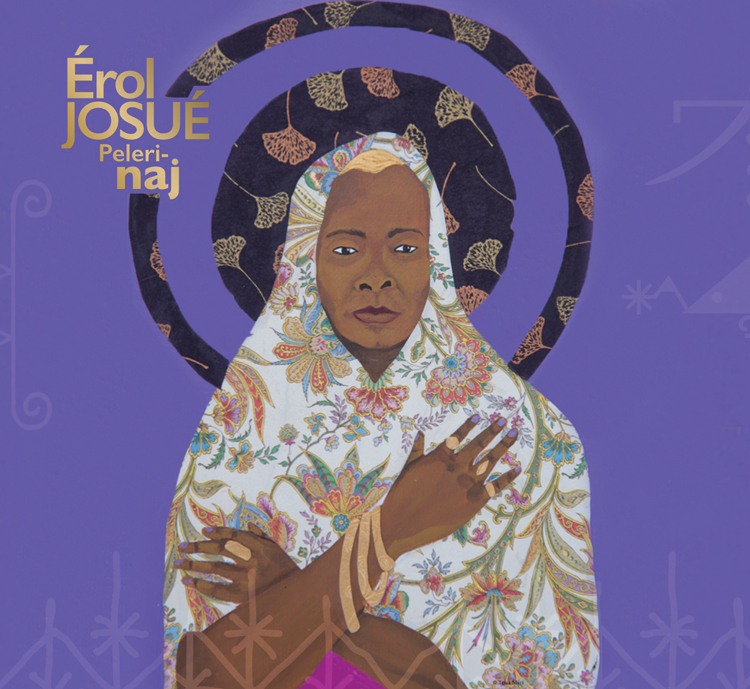Erol Josué – Pèlerinaj (2023)
Erol Josué’s second album, Pèlerinaj (“pilgrimage” in Haitian Creole), is an 18-track exploration of voodoo, a religion that has been poorly represented by Hollywood sensationalism and ignorance. The album skillfully combines sacred chants and traditional rhythms, such as dogo, noki, and fla voudoun, with elements of funk, jazz, rock, and club-friendly electronic dance music (EDM). Pèlerinaj follows Josué’s journey from leaving Haiti at 19 to living in Paris, New York, and Miami for two decades before returning home as a pilgrim and proud repatriate.
Throughout the album, Josué sings beautifully in French and Haitian Creole, telling stories of ancient wisdom and covert engagement. Various songs pay homage to voodoo deities, such as the queen of the night (‘Rén Sobo’); the female sun deity (‘Ati Sole’); and the blessed voodoo Virgin (‘Palave Maria’). ‘Erzulie’ features elegant electric guitar, and mesmerizing electric piano, paying tribute to the goddess of beauty and mother of the world.
‘Sim goute w’ cautions against infatuation and advises using the sacred voodoo cross to protect one’s energy and resist temptation. ‘Badji’ references the secret meeting between African slaves and Haiti’s Indigenous Arawak people, during which the latter passed on their knowledge and land, their “badji,” to the Africans. The song features the choir of the National Theatre of Haiti and archive samples from the court of the King of Whydah in Benin, a central African country where voodoo is an official religion and where Josué’s ancestors may hail from.
‘Je suis grand nèg’ is a tribute to Haiti’s resilience, which became the first Caribbean nation to gain independence from its French colonial masters in 1804. Even in the 21st century, Haiti continues to suffer from endemic poverty, human rights and environmental degradation, as well as natural disasters, including the catastrophic 2010 earthquake that devastated the country.
Josué reflects on his journey, saying that he never considered returning to Haiti while living in Paris and New York, where he created a new family from different music scenes, including France, Brazil, and West Africa. Although he was always practicing as a hoongan or houngan (a voodoo priest), he was part of the diaspora and already had what people in Haiti asked the spirits for: a passport and a new life. When he heard about the earthquake in 2010, he felt the need to sing and recorded the album with Czarnacki’s support.
Josué has accomplished much as a former student activist and graduate of Haiti’s National School of Arts. He founded the 13-member dance ensemble Compagnie Shango shortly after arriving in Paris; performed alongside Afro-Brazilian artists on the Orixás project; and sang lead vocals in Jazz Racine Haiti, a group founded by French/Guadeloupean jazz musician Jacques Schwarz-Bart. In the mid-2000s, Josué found his niche in the New York club scene, working with house music producers. He also co-created a new genre called electro vodou.
Buy Pèlerinaj from Amazon or these other outlets.


